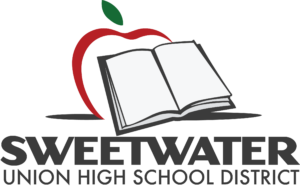As we complete a school year unlike any other in our academic history – a year which saw educators teaching students remotely. A year where social distancing became the refrain of public health officials and face coverings and masks the norm. A year which saw the rapid rise in the use of videoconferencing platforms, such as Zoom and Teams, as the primary instrument for teaching and communicating. A year where millions of people have lost their jobs with no guarantee of support or income for their families. A year where over 103,000 U.S. citizens, including countless educators and students, have lost their lives as a result of a global pandemic which has painfully and disproportionately impacted communities and people of color. And finally a year, where we contemplate whether education will ever be the same, it is the death of one man, George Floyd, whose death was unrelated to COVID-19, that served as a stark reminder of North America’s social complexities and injustices that we, as educators, must continue to address.
We are sure many have asked, what was your reaction when you saw the video of a cop kneeling on the neck of George Floyd? Others have asked, is this just another instance of a White cop killing a Black man? Or, as in the recent killing of Ahmaud Arbery, the case of White citizen killing a Black man (similarities to the Trayvon Martin shooting). Regardless of the questions and answers, the images of George Floyd begging for his life were powerful. The desperate cries for his mother were agonizing. His death was unthinkable and inexplicable. We will mourn his death for years and acknowledge the resultant anger regarding the dubious circumstances. While George Floyd’s family grieves, our nation grieves, and citizens, of all races and ethnicities, are angry. And as educators, we must recognize that many of our students may be traumatized and/or angry by the circumstances related to George Floyd’s death – images which were witnessed on national television and have been shown on national media outlets for the past week (for ways to support our students, families, and colleagues, please check out the resources listed at the bottom of this letter).
Although the images of George Floyd’s death were intense, the power, strength, and capacity of education is formidable. It should be noted, and is generally accepted, that no societal institution, including schools, are perfect and some have even been characterized as biased, discriminatory, or racist. However, there is little doubt that schools and educators have frequently been asked to address social injustices when others have been reluctant. For instance, when society has been slow to address racial integration, schools and courts clumsily stepped in. To address issues of racism and bias in society, schools have introduced multicultural practices, diversity training, and now, antiracist perspectives. And it has been schools and educators who have promoted the inclusion of our LGBTQ communities when the greater society has been resistant. While schools across the nation continue to struggle with such issues as achievement and opportunity gaps, disproportionate suspension and expulsion rates, access to certain programs (e.g., AP classes, Honors Classes, Gifted Programs, etc.), special education placements, and other structural matters, schools have been a place where dialogue on these issues can and has occurred. With the death of George Floyd, it is imperative that schools and educators are now prepared to take on the critical issues of policing, racism, brutality, social injustice and humanity.
The Sweetwater Union High School District believes in a welcoming community that is inclusive and equitable and where relationships between and among students and between and among staff and community matter. We are committed to ensuring a safe and collaborative culture that empowers each student to actively engage in a meaningful educational experience. If school campuses were open, we would ensure students could share their thoughts, feelings and fears in class discussions or peaceful demonstrations. Our campuses are closed, so right now, the most important action we can take is to listen to our students and our colleagues with sensitivity, understanding, empathy and hope.
While we encourage the sharing of resources, books, articles, and other material, we each must start by being introspective. Our critical analysis must consider ways that we or the institutions we serve, have contributed to biased student outcomes. An honest review of our behaviors is necessary to determine if our actions may have inadvertently contributed to a lack of access, inclusion, and opportunities for some student groups and staff. This introspection takes courage and conviction – both of which are traits of our Sweetwater team.
So as another, albeit unprecedented, year comes to a close, we urge you to stay safe and healthy. Please practice social distancing, wear your facial covering and gloves to prevent the spread of the coronavirus. We also encourage our incredible Sweetwater family to help prevent the continued spread of the “racism virus” by addressing and eliminating all personal and institutional practices/policies which lead to social and educational injustices. Lastly, a quote from basketball icon Kareem Abdul-Jabbar is appropriate as he described the demonstrations by stating: “what you should see…in the age of coronavirus is people pushed to the edge, not because they want bars and nail salons open, but because they want to live. To breathe.” Please take care of yourselves, your students, each other and breathe…because breathing is an unalienable right.
In Unity,
Karen Janney, Ed.D.
Superintendent
Joe Fulcher, Ph.D
Asst. Supt. Equity, Culture & Support Services
If you want to go fast, go alone; if you want to go far, go together
